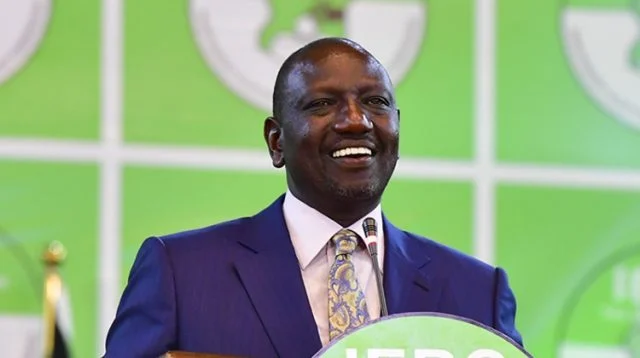By Celestine Mel
Since the announcement of the Kenyan Presidential result won by opposition William Ruto, social media has been in overdrive in Nigeria, interpreting the that the Kenyan outcome is a pointer to what is to come in Nigeria. The netizen supporters of Mr. Peter Obi – presidential candidate of the resurgent Labor Party, are fired up by Ruto’s victory, assured that their candidate, who shares similarities with the new Kenyan President-elect, would be victorious come 2023.
This is a little too optimistic and far-fetched. The truth is, demographic data and factors which influence election outcomes in Nigeria, do not favor Mr. Obi. It is akin to comparing apples with oranges.
According to latest estimates, Kenya has a population of 56.2 million, while Nigeria has 216 million people. This means that Kenyans are about a quarter of Nigerians. Similarly, Kenya is 85% Christian. All other religious groups including Islam, share the remaining 15%. As a result, religion is not a factor in political leadership in that country. It is virtually impossible for a non-Christian to contemplate contesting as President of Kenya. On the flip side, Nigeria is split down the middle between Islam and Christianity. These two religions influence the political choices of adherents to a significant degree.
Kenya speaks Swahili and English languages. The country does not have a dominant local ethnic group. The largest local tribes are kikuyu (17%), Luhya (14%), Kalenjin (13%), Luo (10%), etc. None of them has dominion similar to the Fulani (29%), Yoruba (21%)and Ibos (18%) in Nigeria. From these data, the ethnic configuration of Kenya evens things out significantly, and puts lots of Kenyans on the same scale of probability at the polls. At 17%, the Kikuyu cannot exercise the sort of dominance in Kenya that the Fulani can in Nigeria, for example.
Most importantly, mobile penetration in Kenya is 98% of adults. In Nigeria, it is barely 44%. This means that nearly all of the voters in Kenya had access to social media and fell under its influence That is significant. In comparative terms, latest data from the Nigerian Communications Commission (NCC) says that only 44% of adult Nigerians have access to smartphone and broadband services. This means that less than 50% of registered voters can feel the Obi hysteria, which is driven more by the wave in social media than any other channel. And there is nothing to suggest that Obi has 100% of the 44%. At least, I know that he does not have me yet.
The regional distribution of registered voters after the end of INEC’s CVR indicate that the north west and south-west still lead in the tally. Northwest (Sokoto, Zamfara, Kano, Kaduna, Katsina, Kebbi and Jigawa), home to Kwankwaso, has 22.6 million registered voters, while southwest has 16.2 million. These two combined, account for one-third of the total number of registered voters put at 96 million by INEC. On the third rank is the south-south region (Akwa Ibom, Rivers, Cross River, Bayelsa, Edo and Delta states) with 15 million voters. This is the home to Ifeanyi Okowa (VP candidate to Atiku) and Pastor Idahosa (VP to Kwankwaso), who would definitely chip away the votes especially from the Edo, Akwa Ibom and Delta axis. It is a zone where the swing of votes is often determined by the volume of money that a candidate is willing to pay for every vote. Tellingly, this is where PDP holds the ace, controlling all the government houses. There is nothing to suggest that the outcome would be different in 2023, from previous years given the size of the PDP pocket, the poverty rate, the local upticks incuding the absence of any serious contention for lower offices such as governor, senate, House of Representatives, etc., by Peter Obi’s LP and the recent mutant version called YPP. At the bottom of the distribution is the south-east with just 11.4 million voters. It is a zone that Obi is guaranteed to win albeit, not 100% because he and his home governor are on different political pages. Imo is APC and the rest are PDP.
Taking everything together, the comparison of the Kenya result with any expectation of a similar upset in Nigeria is totally out of place and illogical. I am yet to find evidence to suggest that Peter Obi would possibly come second in the election in 2023, let alone win. The best would be a third place, iff Kwankwaso would allow him. The 2023 election is a fight between Tinubu and Atiku, with Tinubu more likely to win than Atiku.
This is my position as the last five months before the election, wind down. I hope I am proven wrong in the end.
- Celestine Mel writes from the FCT-Abuja
- Feedback: @melfication on Twitter and @08088188805 on WhatsApp

 Entertainment6 days ago
Entertainment6 days ago
 Health1 week ago
Health1 week ago
 Health4 days ago
Health4 days ago
 Football1 week ago
Football1 week ago
 Football1 week ago
Football1 week ago
 Crime5 days ago
Crime5 days ago
 Education6 days ago
Education6 days ago
 Crime1 week ago
Crime1 week ago

